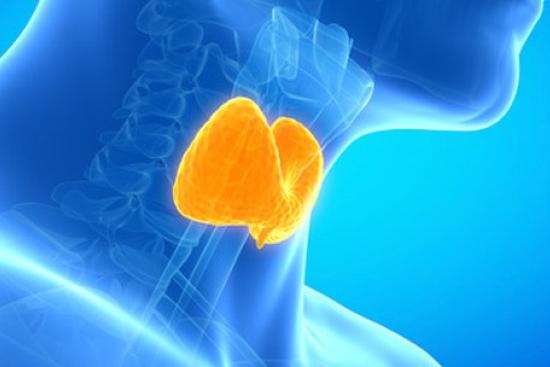Hormones are substances produced by the glands and carried by the blood. They act on several organs and intervene in many functions of the body such as:
Nutrition (regulation of glucose by insulin, leptin for lipid stability ...);
- Growth;
- Reproduction.
Any anomaly or disruption of the functioning of these hormones can cause endocrine diseases (such as thyroid disorders). Thus, endocrinology is the medical field that focuses on the functioning, abnormalities and ways of treating the endocrine system.
Endocrinologists are doctors who study and treat pathologies that are related to hormones or glands. With our counselors, you can be reassured that you will be treated by the best endocrinologists in Turkey.
Find the Best Endocrinologist in Turkey at an affordable price
Turquie Santé allows you to contact the best hospitals which contain an endocrinology department in Turkey. You can ask for a specialized quote to get the hormonal treatment cost in Istanbul.
Turquie Santé will help you find the best endocrinologist in Turkey at an affordable price. You can also book an appointment with one of our partner doctors in endocrinology in Turkey.
Best Clinics with Verified Reviews

- Multispecialized hospital
- 7 operating rooms
- Capacity é of 170 beds

- Multispecialized hospital
- Hospital founded in 2007
- Very good reputation in ENT department
Endocrinology in Turkey: what is it?
Endocrinology is the science that studies to the endocrine system. It is related to the functioning of the glands that produce hormones such as:
- Pancreas;
- Gonads (testicles and ovaries);
- Adrenal glands;
- Thyroid and Parathyroid glands;
- Pituitary gland.
Conditions that can be treated in Endocrinology hospitals & clinics in Turkey
The endocrinologist treats the diseases related to the endocrine disorders (disruption / imbalance of the functioning of the glands). The functioning of these glands can be altered by several factors such as stress, type of meal and sleep. These factors cause a disruption between the hormonal system and the other organs. So, it is the endocrinologist who can find the necessary treatments for this imbalance.
Common malfunctions that can be treated in endocrinology include:
Thyroid gland dysfunction
Many disorders can occur when your thyroid gland sceretes too much hormone (which is called hyperthyroidism) or not enough (hypothyroidism). There four common diseases that result from thyroid gland dysfunction:
- Hashimoto's thyroiditis;
- Graves' disease;
- Goiter;
- Thyroid nodules.
The treatment of these conditions includes:
- Drugs. Antithyroid drugs block your thyroid gland from producing hormones;
- Radioiodine. This treatment destroys the cells that excessively secrete thyroid hormones.
- Surgery. Thyroid surgery (thyroidectomy) is the total or the partial removal of the thyroid gland.
Abnormal function of the adrenal glands
There are two adrenal glands located above each kidney and produce adrenaline and cortisol.
The functions of adrenaline are:
- Increasing the heartbeat and blood pressure;
- Expanding the bronchi (airways of the lungs);
- Dilating the pupil of the eye;
- Increasing the blood flow to the muscles;
- Controlling the body's metabolism to maximize blood sugar levels.
On the other hand, cortisol controls many vital processes of the body such as metabolism and the immunity. It also has an important role in controlling the reaction of the body to stress.
The hypofunction or hyperfunction of these adrenal glands can cause diseases such as pheochromocytomas. The treatment of adrenal glands disorders includes:
- Medication to inhibit the excess secretion of hormones;
- Hormone replacement to substitute those not being produced by the glands.
Malfunction of the pituitary gland ( hypophysis )
The pituitary gland (also called the hypophysis) is a small endocrine gland at the base of the brain. It is responsible for producing several types of hormones such as:
- Growth hormone;
- Prolactin;
- Corticotrophin.
A defect or an excess of production of these hormones can cause several pathologies such as:
- Sexual disorders;
- Amenorrhea;
- Gigantism;
- Acromegaly;
- Corticotropic deficiency.
The treatment of Pituitary disorders includes hormonal therapy and medication that aims to rebalance hormones. The treatment consist of injecting hormones to replace those not being secreted by the pituitary gland.
Menopause, polycystic ovaries & Endocrinology
Although Menopause symptoms are so hard to bear, it is not considered as a disease. In fact, it is the lack of estrogen (the female hormone) and high levels of FSH (follicle stimulating hormone). It occurs in women who are between 45 and 50 years old.
Polycystic ovary syndrome is an endocrine disorder that leads to irregular or long menstrual periods. It is often cause by an excess male hormone (androgen) levels. The ovaries develop many cysts and fail to produce oocytes (female reproductive cells).
The treatment of Menopause may include:
- Hormonal therapy (estrogen injections);
- Antidepressant drugs;
- Gabapentin (an anticonvulsant drug);
- Clonidine (a drug that decreases high blood pressure);
- Medications that treat bone loss.
Diabetes and Endocrinology
Characterized by an excess of glucose (body sugar) in the blood and therefore a hyperglycaemia. It is caused by a lack of the insulin (a hormone that is produced by the pancreas). This disease has no cure, but an endocrinologist can check you up regularly.
He will help you keep your sugar level stable through insulin injection, a well-balanced diet, and sports activities.
Share this page






